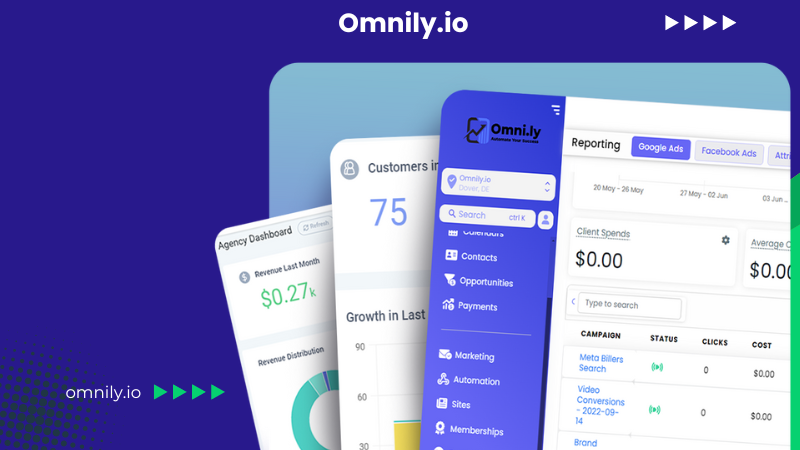Streamlining Task Management with Omnily.io
In today’s fast-paced business world, task management and efficiency are paramount. As organizations strive to stay ahead of the competition, the adoption of comprehensive Customer Relationship Management (CRM) tools has become a necessity. Omnily.io CRM, a cutting-edge platform, is designed to elevate your business by streamlining your marketing efforts and task management processes. This article explores the expert services offered by Omnily.io, aiming to enlighten businesses on how to leverage this tool for enhanced productivity and success.
Benefits of Using Omnily.io
Utilizing Omnily.io offers myriad benefits that cater to various aspects of business operations. Primarily, it simplifies task management, making it easier for teams to collaborate, prioritize, and execute tasks efficiently. By integrating all your marketing efforts into one platform, Omnily.io ensures that your customer relationships are nurtured effectively. The automation of routine tasks frees up time for your team to focus on more strategic activities, ultimately driving business growth. Furthermore, the analytics and reporting capabilities of Omnily.io provide insightful data, enabling informed decision-making and performance optimization.
Features of Omnily.io CRM
The robust feature set of Omnily.io CRM stands out for its comprehensive approach to task management and marketing. Key features include:
- Task Automation: Automate repetitive tasks, such as email follow-ups and data entry, enhancing efficiency and accuracy.
- Lead and Contact Management: Centralize the storage of customer information, making it accessible and actionable for the entire team.
- Marketing Campaigns: Design, execute, and monitor marketing campaigns from within the platform, ensuring a consistent and personalized customer experience.
- Analytics and Reporting: Gain valuable insights into your business operations and campaign performance, enabling data-driven adjustments and strategies.
- Customizable Dashboards: Tailor your dashboard to display the most relevant information, ensuring quick access to critical data and insights.
Best Practices for Implementing Omnily.io CRM
While Omnily.io is intuitive and user-friendly, adhering to best practices can significantly enhance its effectiveness within your organization. Key recommendations include:
- Comprehensive Training: Ensure that your team is well-versed with Omnily.io’s features and functionalities. Utilize the training resources provided by Omnily.io to facilitate this.
- Data Integration: Seamlessly integrate existing customer data into the Omnily.io platform to maintain continuity and leverage historical insights.
- Customization: Customize the platform to align with your specific business needs and workflows for maximum efficiency and ease of use.
- Regular Review: Schedule regular reviews of your Omnily.io setup and usage to identify areas for optimization and to keep abreast of new features.
Real-World Applications and Case Studies
Companies across industries have witnessed tangible improvements in productivity and customer satisfaction after implementing Omnily.io CRM. One notable case study involves a mid-sized retail company that experienced a 30% increase in sales within the first six months of using Omnily.io. This was achieved through the automation of their sales process, improved lead management, and targeted marketing campaigns. Another success story comes from a service-based enterprise that saw a significant reduction in task execution time, allowing them to allocate more resources towards innovation and customer service.
In conclusion, Omnily.io CRM embodies a comprehensive solution for businesses looking to streamline their task management and bolster their marketing efforts. With its wide range of features, customization options, and real-world success stories, Omnily.io stands out as a pivotal tool for businesses aiming for growth and efficiency. As the digital landscape evolves, having a robust platform like Omnily.io can provide the edge needed to thrive in competitive markets.


